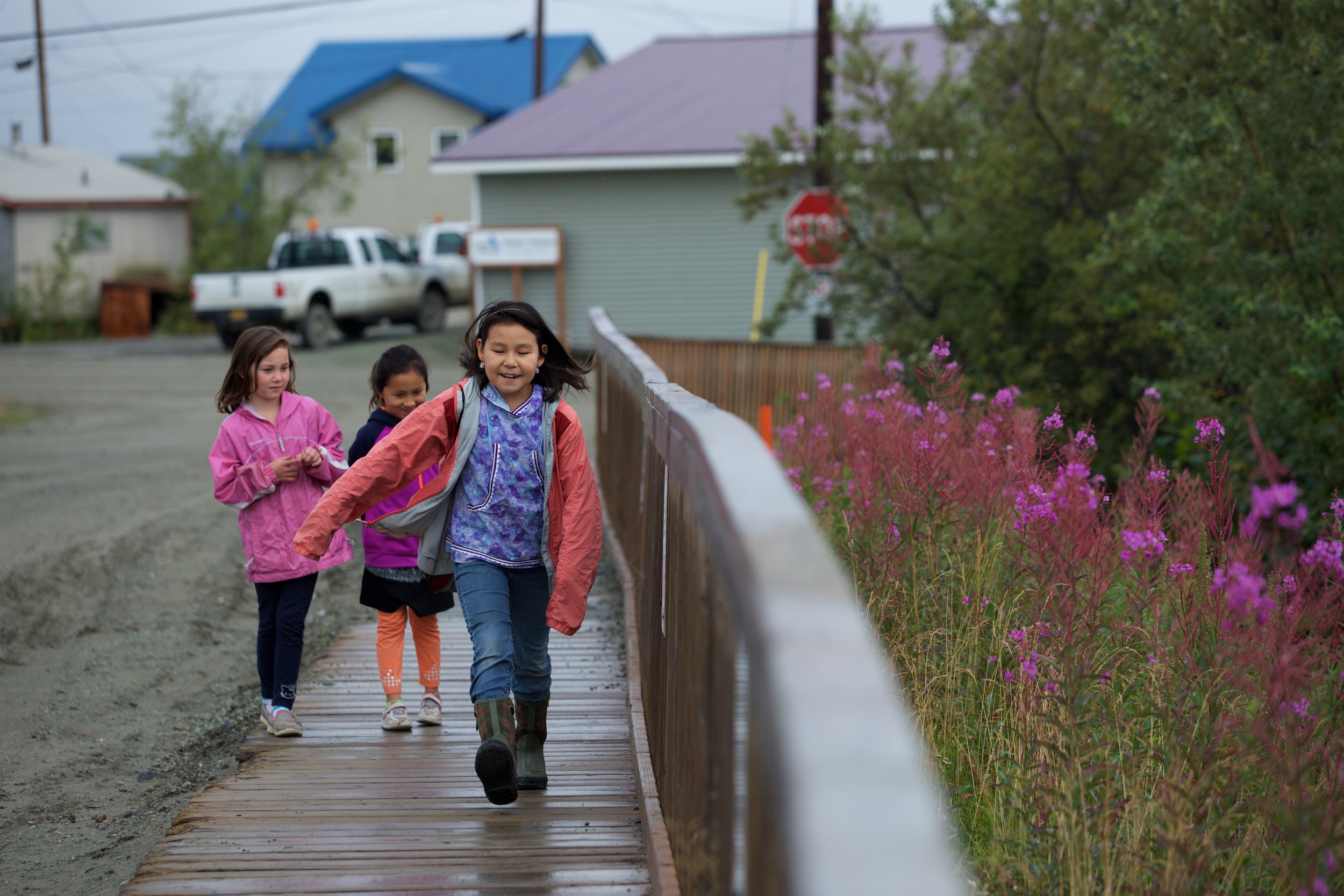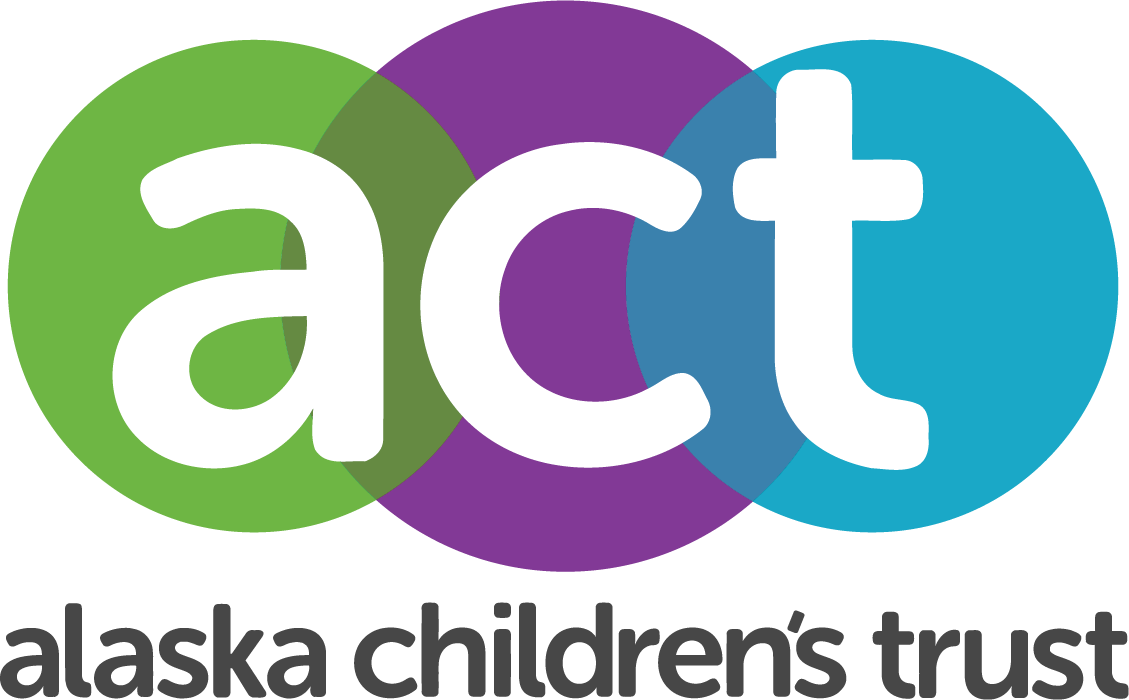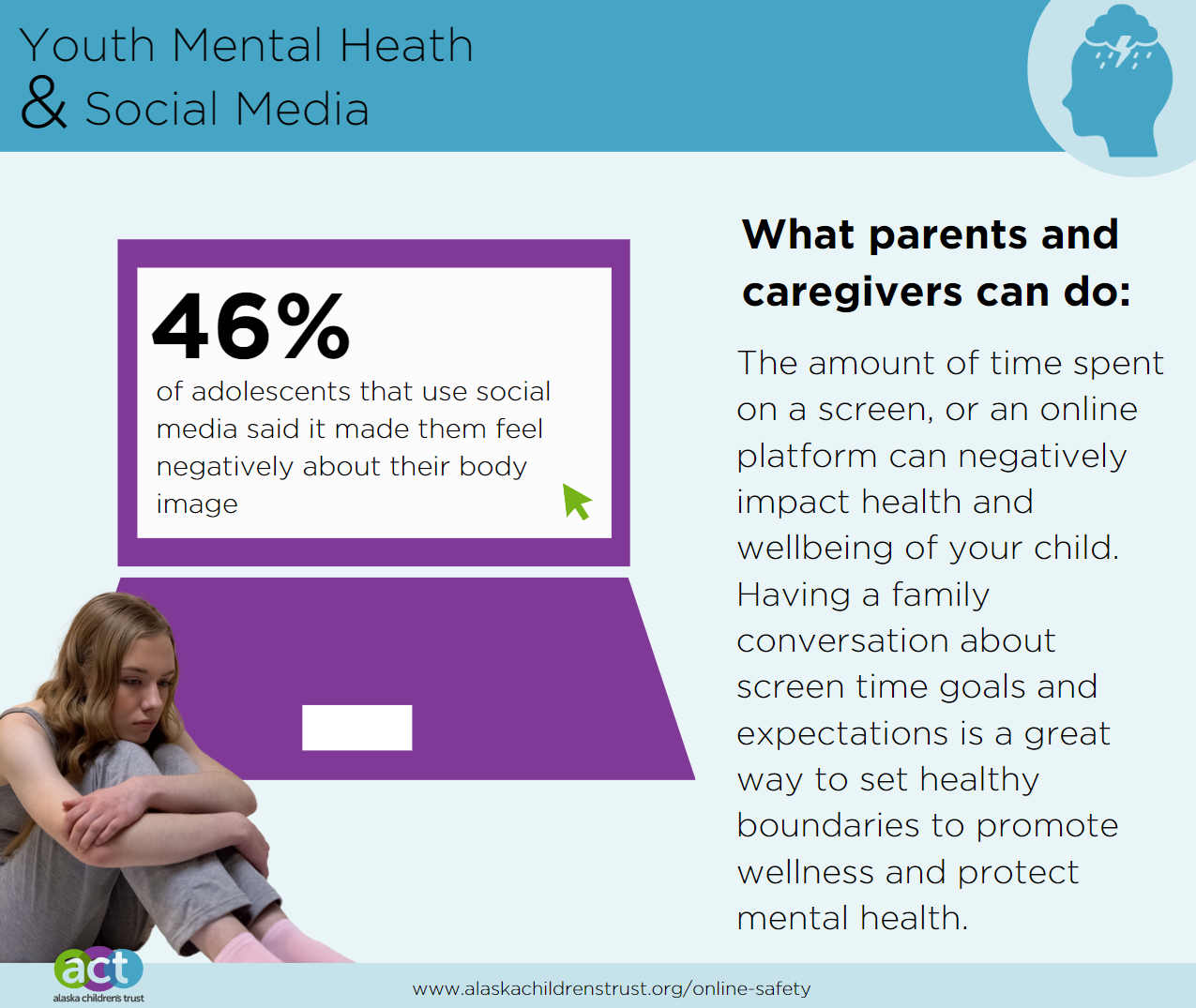
Youth Mental Health in Alaska
Alaska Children’s Trust places a strong emphasis on the importance of children's mental health and understands its crucial role in overall well-being. Below, find resources and ways to help youth in your life who may be struggling. Together, we can ensure a brighter future for our youth.
Why is youth mental health so Important?
DEVELOPMENTAL IMPACTS
Adolescence is a critical period of growth and development, both physically and psychologically. Mental health issues during this phase can significantly impact a young person's overall well-being, emotional development, educational attainment, and social relationships. By promoting positive mental health, we contribute to the development of strong social connections, emotional resilience, and a sense of belonging, which are vital for healthy personal and social development. Addressing mental health concerns early on is crucial for fostering positive development and preventing long-term consequences.
“We’re here because there is hope. There is hope for change”
- UAA Chancellor Sean Parnell at the Youth Mental Health Roundtable
HELPFUL STATISTICS
Youth Mental Health Today
Struggles with mental health can cause sleeping issues, attention problems, depressive symptoms, and suicidal thoughts and behaviors. Prioritizing youth mental health involves creating a supportive environment, raising awareness about suicide prevention, and providing access to appropriate mental health resources. These efforts ultimately save lives.
100%
suicidal planning rates in the last decade have risen 100% for male students and 80% for female students (KIDS COUNT, 2009-2019)
80%
In just Alaska, at least 80% of youth with mental illness have unmet need
38%
of Alaskan high school students experience daily feelings of sadness or hopelessness, highlighting the significance of addressing mental health issues
50%
of all lifetime mental illnesses begin by the age of 14
SOCIAL MEDIA AND MENTAL HEALTH
There are strong linkages between unhealthy usage of social media and youth mental health according to the U.S. Surgeon General 2023 report on Youth Mental Health. You can also see statistics specific to social media on our webpage about keeping kids and youth safe online.

Actions ACT is Taking
Online Safety & Youth Mental Health
Recently, the U.S. Surgeon General identified the clear connection between unhealthy social media usage and youth mental health in a new report.
ACT addresses this need in our community by offering resources on online safety for parents and teens about topics as varied as Guidelines on Platforms & Privacy, Online Gaming Info, Device Advice, and Info on Illicit Content.
Grant Funding
ACT places a strong emphasis on the importance of children's mental health and understands its crucial role in overall well-being. We also acknowledge that one solution isn’t always applicable in every unique Alaskan community, which is why ACT acts as a grantmaker to support community-led initiatives to combat struggles with youth mental health.
This year, thanks to a generous grant from Saltchuk Companies, ACT's Cultural Activities Grant funded 30 grantees to run cultural activities centered on improving youth mental health.
Advocacy and Education
Access to age appropriate information on mental health and what resources are available to our youth is paramount to preventing emergencies before they escalate. Youth mental health is front of mind during ACT’s legislative visits and during partner convenings.
As the next legislative session gets closer, explore ACT’s policy framework here or subscribe to our listserv for the most recent updates.
Words and Recommendations From Our Leaders
“You can have the strongest economy in the world, best jobs in the world, and the community is looking like everything is going great in your state. [But] If 50% of the girls in your state are depressed and thinking about suicide, I don’t think much else matters. This should be the number 1 issue we are focusing on.”
“Addressing the youth mental health crisis isn’t just about helping our kids, it’s about helping the parents… there is nothing worse than having to see your kids suffer and not being able to do anything about it.”
“Growing up, probably every month I thought about suicide. I’m here today why? It’s the primary prevention stuff. We’re hearing [stories] about the downstream. In Alaska we say we go so far upstream we stop the glacier from melting. My glacier did not melt because there were loving adults and I was involved in activites. Let alone, I was very lucky to have amazing parents. That’s why I’m here and able to speak about primary prevention.”
Share Your Story
Have struggles with youth mental health impacted you or someone you love? Share your story with us (anonymously if you'd like) so we can help advocate for policies and resources to ensure every Alaskan child and teen has what they need to thrive.
Resources
-
We can all help prevent suicide. The Lifeline provides 24/7, free and confidential support for people in distress, prevention and crisis resources for you or your loved ones, and best practices for professionals in the United States. Learn more about 988 suicide and crisis line here.
Call or chat with the Lifeline anytime at 988.
-
Careline provides crisis intervention for individuals considering suicide or experiencing crisis, isolation, or depression. Careline supports survivors of a suicide attempt or loss to suicide by providing crisis intervention, education, and referral. Learn more about Careline here.
Crisis line info:
o Call: 1-877-266-4357
o Or text 4help to 839863
-
VOA Alaska provides behavioral health and well-being services to youth, young adults, and their families. Our strength-based and person-centered services promote wellness in all areas of a person’s life through mental health therapy, substance use counseling, family therapy and kinship care, supportive housing, and youth residential treatment. We are in schools, in the community, and supporting Alaskans statewide through telehealth services. As a non-profit, all our services are offered at low or no cost, and no one is ever turned away due to an inability to pay. Learn more at voaak.org or by calling (907) 279-9640.
-
Alaska Behavioral Health mission is to strengthen Alaska communities and improve the lives of their clients by delivering exceptional behavioral healthcare services. Alaska Behavioral Health believes all Alaskans, with all mental health and addiction needs should have access to the best possible care. Learn more about Alaska Behavioral Health here.
Contact info:
o Anchorage - Children’s and Family clinic call (907) 561-0954
o Fairbanks - Children’s and Family clinic call (907) 371-1300
o Mat-Su - Children’s and Family outpatient clinic call (907) 563-1000
-
The Suicide Prevention Resource Center (SPRC) is the only federally supported resource center devoted to advancing the implementation of the National Strategy for Suicide Prevention. SPRC is funded by the U.S. Department of Health and Human Services’ Substance Abuse and Mental Health Services Administration (SAMHSA). Learn more about Suicide Prevention Resource Center here.
-
The Providence Crisis Recovery Adolescent Program serves people ages 12 to 18 who are having a mental health crisis. Our care helps patients and their families work through the crisis and provide tools to cope in the future. Each of our mental health specialists, therapists, registered nurses and our psychiatrists are committed to providing the best possible care to our patients.
Our co-ed program helps about 100 adolescents each year. The care we provide is personalized, serving only eight patients at our facility at a time. Patients and their families meet with a therapist to create an individualized treatment plan. This plan includes a strict schedule of therapy and activities that help our patients learn and practice healthy coping skills. Learn more about the crisis recovery center here.
-
The ANMC Emergency Department (ED) provides full-service emergency care across the broad spectrum of illness and injury. The ED also helps guide medical care for Alaska Native and American Indian people living in rural communities by working closely with village health care providers. Learn more about the Alaska Native Medical Center Emergency Department here.
Join our policy & advocacy mailing list to learn about action alerts on youth mental health topics or contact us here to learn more.









